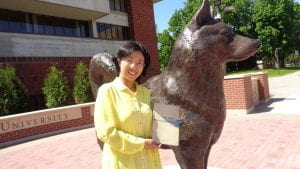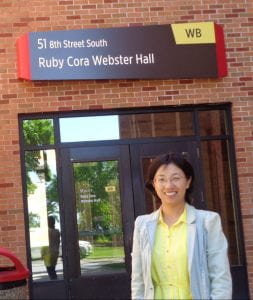Greetings loyal readers,
Check out this opportunity that just popped up in my email today!
We’re excited to offer two Zoom Open Houses for Stony Brook’s Creative Writing MFA program.
On Monday, 11/30, at 4 p.m. EST, we’re convening a faculty panel: Secrets of a Great MFA Application. Faculty Admission Committee Members will talk about what makes an outstanding Statement of Purpose. They’ll also be giving advice regarding the all-important Writing Sample.
ID: 96348126097
Password: 334096
On Monday, 12/7, at 5 p.m. EST, we’re offering a Pop-Up Faculty-Student Reading and Q & A re: the Stony Brook MFA in Creative Writing & Literature.
ID: 92184320719
Password: 424973
Here at Stony Brook’s Creative Writing MFA program, we’ve been impressed by the quality of our applicants and by the strength of our writing community. Stronger still in this year of virtual classes.
Here are 7 ways The Stony Brook MFA program makes a difference in a student’s creative life:
1.) Small classes and plenty of attention: Writing workshops capped at 12.
2.) Outstanding faculty—all of whom are working writers: Paul Harding, Susan Scarf Merrell, Ursula Hegi, Molly Gaudry, Robert Lopez, Susan Minot, Patricia Marx, Patricia McCormick, Matthew Klam, Melissa Bank, Roger Rosenblatt. Guest faculty members have included Regina Porter and Hugh Ryan.
3.) Rigorous and supportive writing guidance.
4.) During the thesis process every MFA student works one-on-one with an advisor for a year and a half to complete a book-length manuscript, whether a novel, collection of short stories, memoir, or poetry.
5.) We offer a teaching practicum during which students craft 3 creative writing syllabi, then teach undergrads. A great résumé builder. Very few MFA programs offer grad students the chance to teach creative writing.
6.) Our graduates find jobs in publishing and academia.
7.) Our students get published! And win prizes. Genevieve Sly Crane’s thesis became her short story collection and this year she won the coveted Whiting Award. Here are a few of our other outstanding writers: Helen Simonson’s Major Pettigrew’s Last Stand was an international bestseller. Tricia Rayburn has written several YA novels, including The Siren Series. This year Caitlin Mullen’s Please See Us was published to rave reviews. Alison Fairbrother is an editor at Riverhead Books and Random House is publishing her novel, The Catch, next year. Graduates Miranda Beeson and Nancy Keating both have poetry chapbooks appearing soon. Elena Gorokhova has published two award-winning memoirs, including A Mountain of Crumbs.
Other benefits? We offer Submitathons to help students prepare cover letters then send work out to literary journals. Our Writers Speak Wednesday reading series has featured luminaries such as T Kira Madden, Major Jackson, Jamil Jan Kochai, land Roz Chast. Each Spring we offer agent visits. Graduating students get one-on-one meetings with literary agents—and several have been signed on.
With our two creative writing campuses, one in Manhattan, the epi-center of the publishing world, and the other in Southampton, a stone’s throw to Atlantic Ocean beaches and the literary community of the East End of Long Island, we are able to offer students wonderful, sometimes unexpected, opportunities.
We have rolling admissions. Applications to be considered for funding are due 1/7/21. www.stonybrook.edu/southampton/mfa/cwl/
State tuition is a fraction of the cost of other MFA programs.
Thanks for letting your students know about our Open Houses. Please contact us if you have any questions.
With all best wishes,
Lou Ann Walker
Director
MFA in Creative Writing & Literature
Stony Brook Southampton + Manhattan
stonybrook.edu/southampton/mfa/cwl/
631-838-8742



